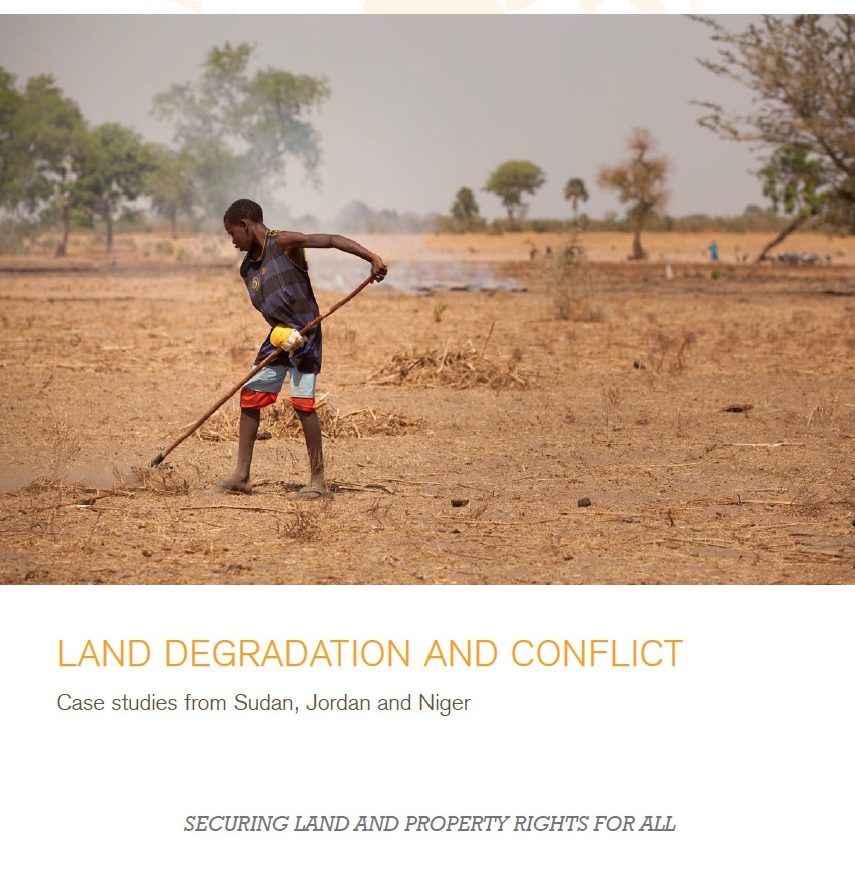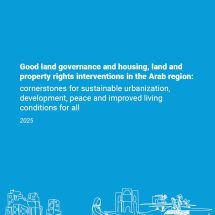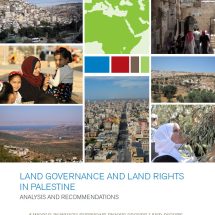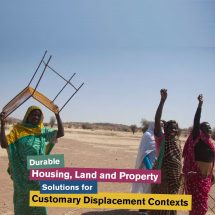Learning from Jordan, Sudan and Niger how to advance the land degradation neutrality and the peace agenda through land tenure security and good land governance
Avoiding, reducing and reversing land degradation is essential for the food security of current and future generations, for the conservation of biodiversity and the achievement of climate targets. In the current context of increased competition over land resources, rising food insecurity, and inequalities, combating land degradation is also necessary to prevent and mitigate conflict and mass displacement, which risk to destabilise countries and entire regions.
The research conducted by UN-Habitat and the Global Land Tool Network (GLTN) “Land Degradation and Conflict: Case studies from Sudan, Jordan and Niger” describes the nexus between land degradation and conflict, its main features and how it plays out in the three countries examined as case studies.
The report found that “land degradation is often the manifestation of deeper root causes of conflict, such as population pressure, scarce natural resources, cross-border dynamics, weak governance, dysfunctional land administration, politics of exclusion, and plural legal systems. In the presence of root causes of conflict, land degradation can be the triggering factor of conflicts and violence, particularly in situations of mass displacement and migration, food insecurity and competition over land use by different groups.”
Land degradation affects both urban and rural areas. In rural areas, poverty forces dryland farmers and herders into unsustainable practices to produce more food to meet their basic needs. In urban areas, the limited availability of land resources adds pressure and contributes to degrading peri-urban land.
In fragile contexts, land degradation and conflict are strongly interlinked: land degradation fuels conflict while conflict accelerates land degradation and jeopardises the capacity of states and communities to engage and invest in land degradation neutrality.
Looking at its gender dimension, women are more vulnerable to the effects of land degradation, as they often depend on the land they farm – even if they do not own it in their name. Further, despite their key contribution to securing the world’s food supply, women’s marginalisation in land-related decision-making processes undermine the sustainability of the interventions combating land degradation.
The report concludes with a raft of measures to help mitigate land degradation and avert related conflict, stressing the importance of land tenure security to achieve land degradation neutrality: “The protection of the land rights of individuals and communities is essential to combat land degradation and reversing past degradation. Good land governance and functioning land management systems are key for the protection of land rights and have an important role mitigating the causes and handling the effects of climate change, desertification, and land degradation.”
Highlights of the report were presented at the 50th Committee for Food Security, at Side Event 31 on “Unlocking the potential of the VGGTs through Land Degradation Neutrality” on 13th October 2022.












